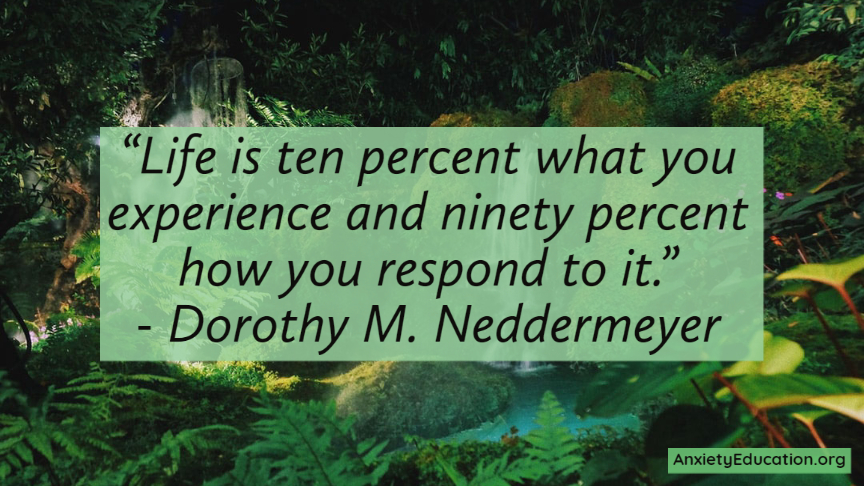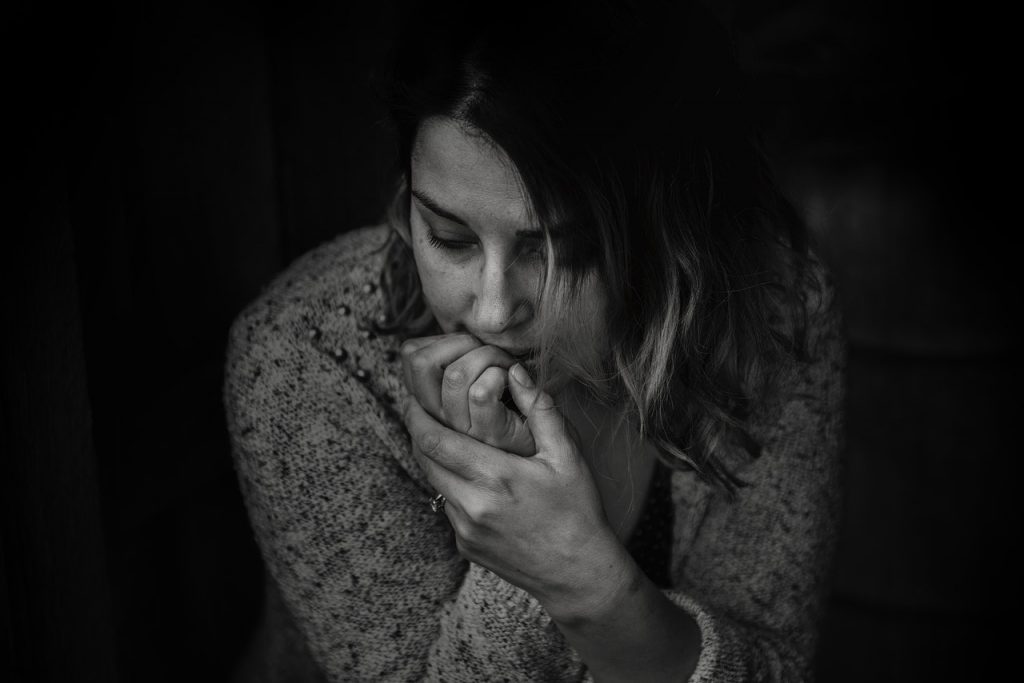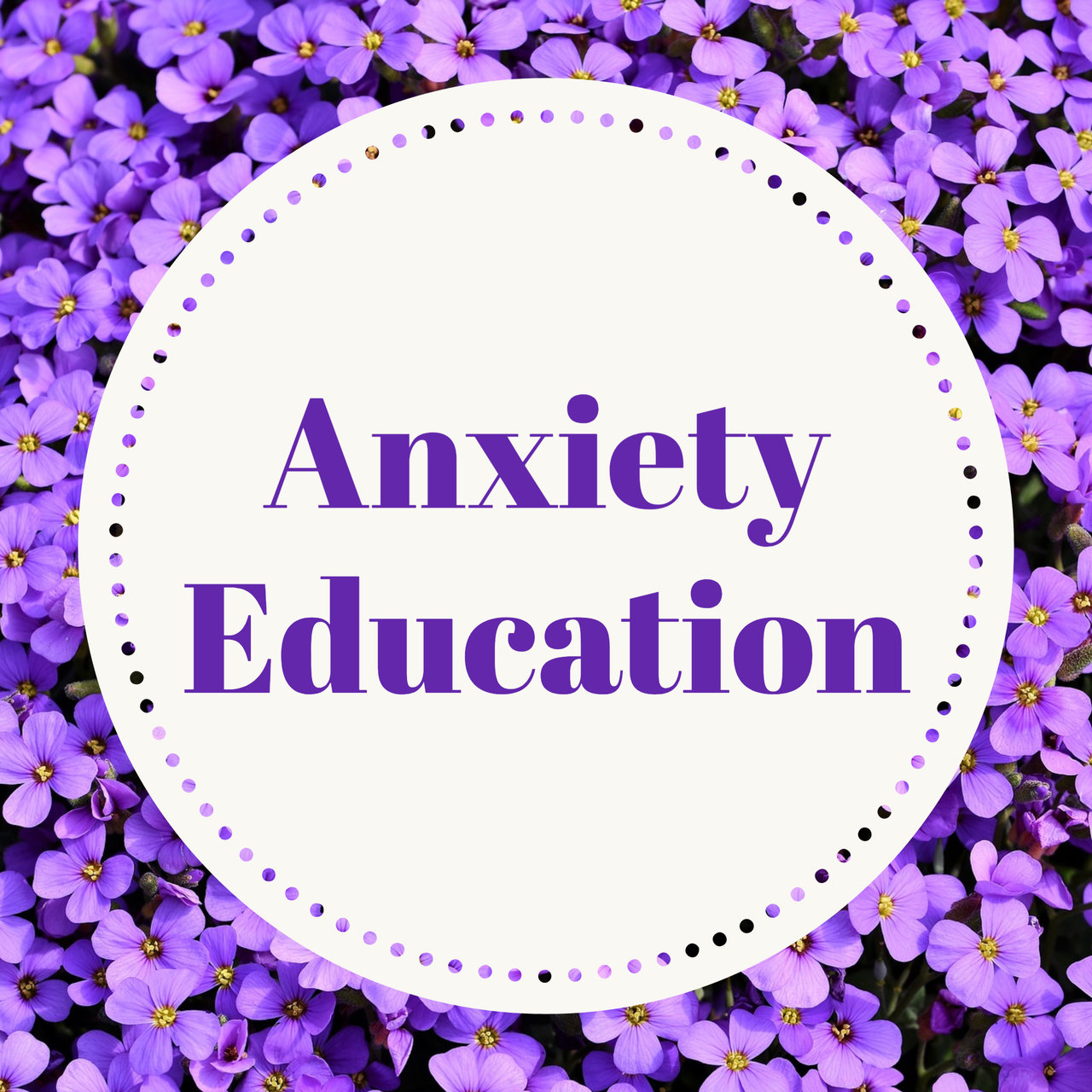
Five Major Types of Anxiety and How Self-Care Can Help
Just like most common illnesses, anxiety can come in many forms. It can also affect people with a variety of symptoms. Many of those with anxiety disorders experience several types of anxiety, as well as depression.
According to the Anxiety and Depression Association of America, anxiety is the most common mental condition. It affects 18.1% of the U.S. population over the age of 18. However, only 36.9% of sufferers seek treatment.
Importantly, for those experiencing anxiety symptoms, it is necessary to seek support early. Symptoms often do not go away on their own. If left untreated, these symptoms can severely impact one’s life. Anxiety disorders can develop due to a number of different factors. These include genetics, brain chemistry, personality, and even life events.

Not all instances of anxiety are the same. In fact, there are five major variations of anxiety disorder. Each type can affect individuals differently, so it is important to view them all separately.
- What is Generalized Anxiety Disorder?
- What is Obsessive-Compulsive Disorder?
- What is Panic Disorder?
- What is Post-Traumatic Stress Disorder?
- Social Phobia
What is Generalized Anxiety Disorder?
People who suffer from generalized anxiety disorder (GAD) display unnecessary anxiety. Generally, they will experience some type of anxiety on a regular basis for at least six months. GAD can develop from stressors such as work, social interactions, or even everyday circumstances.
This feeling of anxiety can begin to cause problems at work, school and in daily social interactions.
Symptoms of generalized anxiety disorder vary, but can include:
- The feeling of restlessness, or being on-edge
- Constant fatigue
- Difficulty with concentration
- Sudden irritability
- Unexplained muscle tension
- Uncontrollable feelings of worry or doubt
- Sleeping problems, falling asleep or staying asleep
What is Obsessive-Compulsive Disorder?
People who suffer from OCD show symptoms of overly obsessing or uncontrolled compulsion. Thus, these symptoms often make life very difficult. They can also lead to difficulties in personal relationships.
Obsessions mostly appear through fear of germ contamination. They can also form unwanted or intrusive thoughts, or the need to have items arranged in perfect order. Often these are experienced as urges or mental images.
The compulsions can manifest through obsessive cleaning and hand washing or arranging things in specific ways. Sufferers also repeatedly check on things or count compulsively. In other words, these are often feelings or urges that require a response.
Furthermore, obsessive-compulsive disorder symptoms often lead to personal difficulties. These difficulties can include keeping healthy relationships or performing well at work or school.
What is Panic Disorder?
Panic disorder is a severe form of anxiety. This disorder causes unexpected panic attacks. Panic attacks are often sudden feelings of intense fear that peak quickly. For instance, these attacks are unforeseen and happen in situations of fear.
People who experience panic attacks generally report:
- Uncontrollable heart rate
- Intense sweating
- Shaking
- Shortness of breath or inability to breathe
- Intense feelings of impending doom
- Inability to control emotions
Those with panic disorders are often concerned about triggering the next attack. They usually avoid certain places, situations or behaviors that can trigger the attacks. Besides, avoiding certain actions often leads to significant problems in a person’s life and can hurt relationships. Panic disorder treatment usually involves prescription SSRI’s or emotional therapy. Some patients favor traditional therapy. Therapy allows patients to minimize or avoid the side-effects of prescription medications.
What is Post-Traumatic Stress Disorder?
Post-traumatic stress disorder (PTSD) generally develops from negative experiences. PTSD sufferers have usually experienced a shocking, scary or life-threatening event. The body’s natural response after a traumatic event is to induce fear. Fear can cause the body to react in ways to avoid danger. This is the “fight or flight” response and can protect a person from harm.
Typically, most people who experience trauma heal emotionally. Those who continue to experience problems could be diagnosed with PTSD. People living with PTSD often feel stressed or on-edge. These feelings can persist even when there is no danger.
Social Phobia
Social phobia is when a person has a strong fear of social or performance situations. This condition is also called social anxiety disorder. Often, these people fear that others often judge their actions. They often feel embarrassed or anxious in social situations. Additionally, fear of judgment can lead people to avoid social situations. Social anxiety or social phobia can manifest almost anywhere. It can occur at home, at the workplace or at a social gathering. Yet, there is no proper social anxiety disorder test. Physicians generally diagnose social phobia based on a description of the patient’s symptoms or behaviors.
Treating Different Types of Anxiety with Self-care
Living with anxiety can be very difficult, but it is manageable. Most anxiety sufferers do not want to experience the side-effects of taking pharmaceutical drugs. This is due to the fact that anti-anxiety medication can be habit-forming or potentially abused. So how can a person treat anxiety with self-care?
Manage Physical Health
- Try to get enough sleep – Sleep can provide the body with emotional energy to respond to situations effectively.
- Assess your diet – Eating correctly and often can help manage blood sugar levels. This can greatly affect the body’s mood.
- Try physical activity – Exercise is a natural stress reliever and can release negative feelings and emotions.
Try to Manage Stress
- Set aside a block of time for relaxation, meditation or self-reflection. Focus on the day’s worries and how to deal with them.
- Write down the day’s problems. Expressing what is bothering you can be the first step in moving past it.
- Breathing exercises and yoga have great anti-stress and anti-anxiety benefits.
How Can Kratom Help Battle All Types Of Anxiety?
Some anxiety sufferers have had good experiences with natural supplements or herbal remedies. For those that have tried everything and still cannot seem to control their anxiety, there’s another option. A recent study has shown that kratom can be an effective alternative to managing stress and enhancing a person’s mood.
Furthermore, a similar study concluded that kratom was useful in lowering inflammation. Inflammation has been linked to a variety of health issues, including anxiety. Keep in mind; kratom is not an FDA approved substance. Kratom has not yet been clinically evaluated.

Most kratom users suggest starting with 2-3 grams and moving up until reaching the desired effects. A moderate dose is around 4-5 grams, and a full spectrum dose is 6-7 grams. Finally, most users recommend a strain of red leaf kratom for its potential mood-enhancing effects.
All types of anxiety can be debilitating, and steps should be taken to help deal with these conditions. It is always better to deal with it sooner rather than later. Always follow a licensed physician’s recommendations and take time to focus on your overall and mental health.
